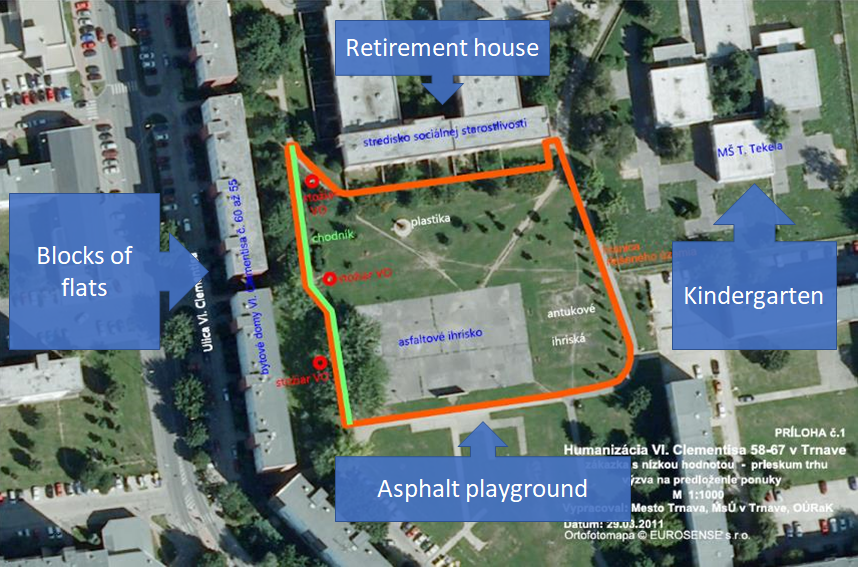Success and limiting factors:
Slovakia is currently revising its National Adaptation Strategy, but has not developed a national adaptation action plan yet; the initiative in Košice and Trnava was carried out in the absence of national regulations. Therefore, there is little support on adaptation for local authorities from the national level. Alongside Trnava and the Zapad borough of Košice, only Bratislava and Kezmarok have developed adaptation plans to date. Therefore, overall, there is a limited willingness of the local authorities to invest their resources into the systematic adaptation process.
At the city level, other limitations are associated with the local authority officials, being overwhelmed by their day-today activities. Also the novelty of the climate adaptation topic and its multispectral character make it a difficult subject to tackle by representatives of local authorities.
A major success factors was strong commitment from the city leadership. In Košice, a strong enabling factor was the support from the local Mayor interested in the adaptation agenda. In Trnava, the interest of the local government officials in climate change and the willingness to learn drove their participation in the international conference Climate Change and Local Development – Challenge for Local Governments (March 2012, Bratislava). Following the event, the representatives of Trnava City actively looked for support in development of their adaptation action plan. The solution was found in the joint project led by Carpathian Development Institute dealing with the assessment of vulnerability to high temperatures and heatwaves. The collaborative nature of the project was one of the success factors. The availability of external funding was also crucial in completion of the vulnerability assessment and development of the climate change adaptation plans.
Budget, funding and additional benefits:
In Košice, funding for the development of the Zapad Adaptation Strategy was provided through the project “Climcross Development: Partnership for addressing climate change impacts on development” run within the Hungary-Slovakia Cross-border Co-operation Programme 2007–2013.
In Trnava, funding was provided by the project “Cities resilient to Climate Change Impacts” inspired by city of Trnava, which was funded via Swiss Financial Mechanism (SFM). The SFM financed mainly the development of the Adaptation Strategy, but 20,000 euros were provided for tree seedlings, which were planted and are being maintained by the Trnava city. The grant/participatory budget scheme aiming to support small-scale adaptation measures (minimum 10,000 euro a year) is financed from the city budget.



